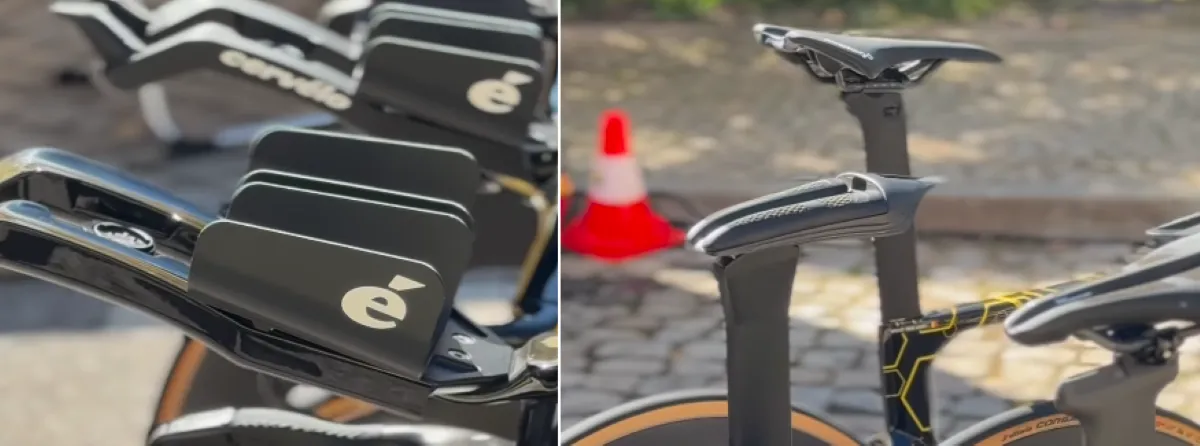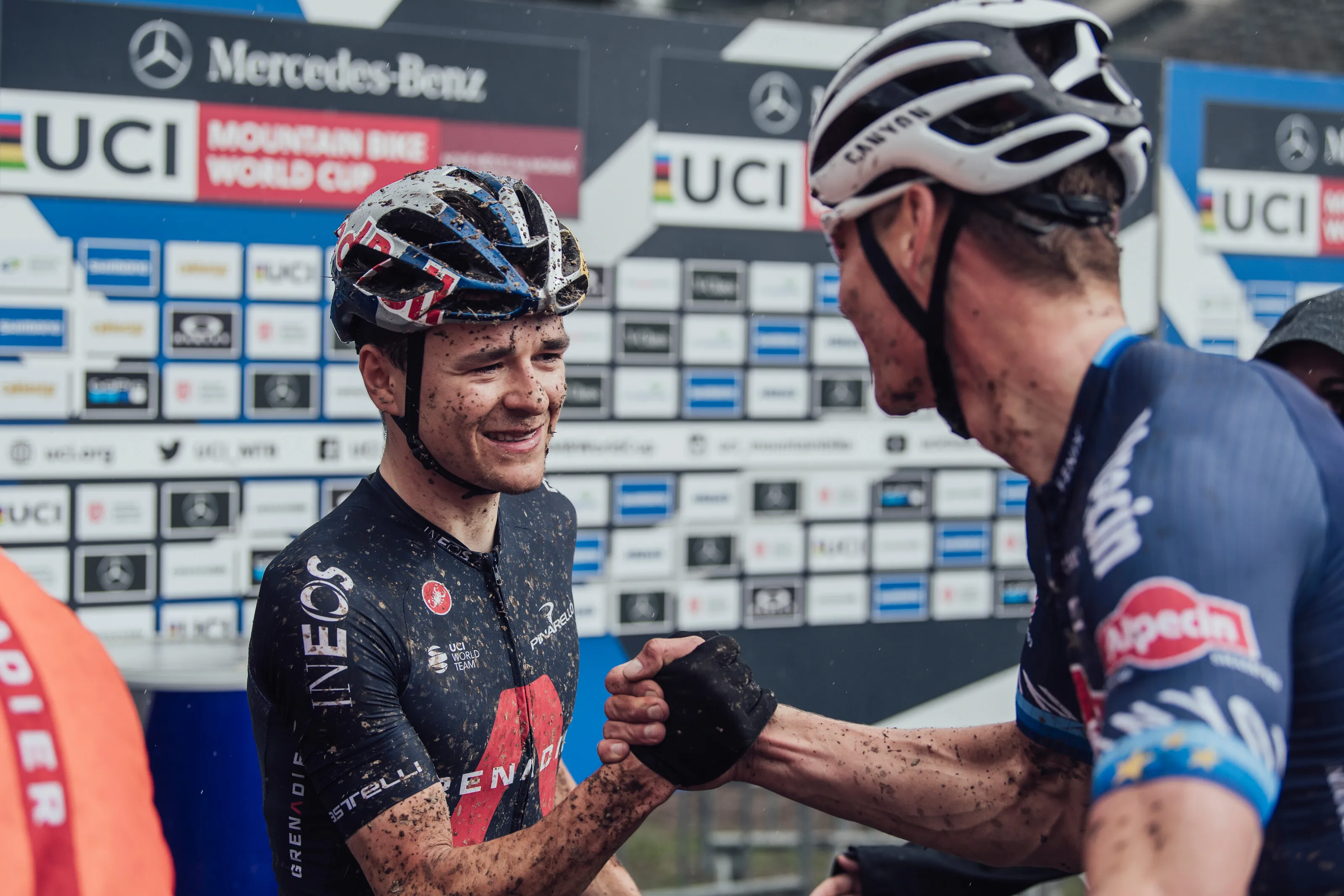Tankink and Gesink react to Rabobank's return: "I was really happy when I got the call last week"
CyclingThursday, 27 February 2025 at 18:18
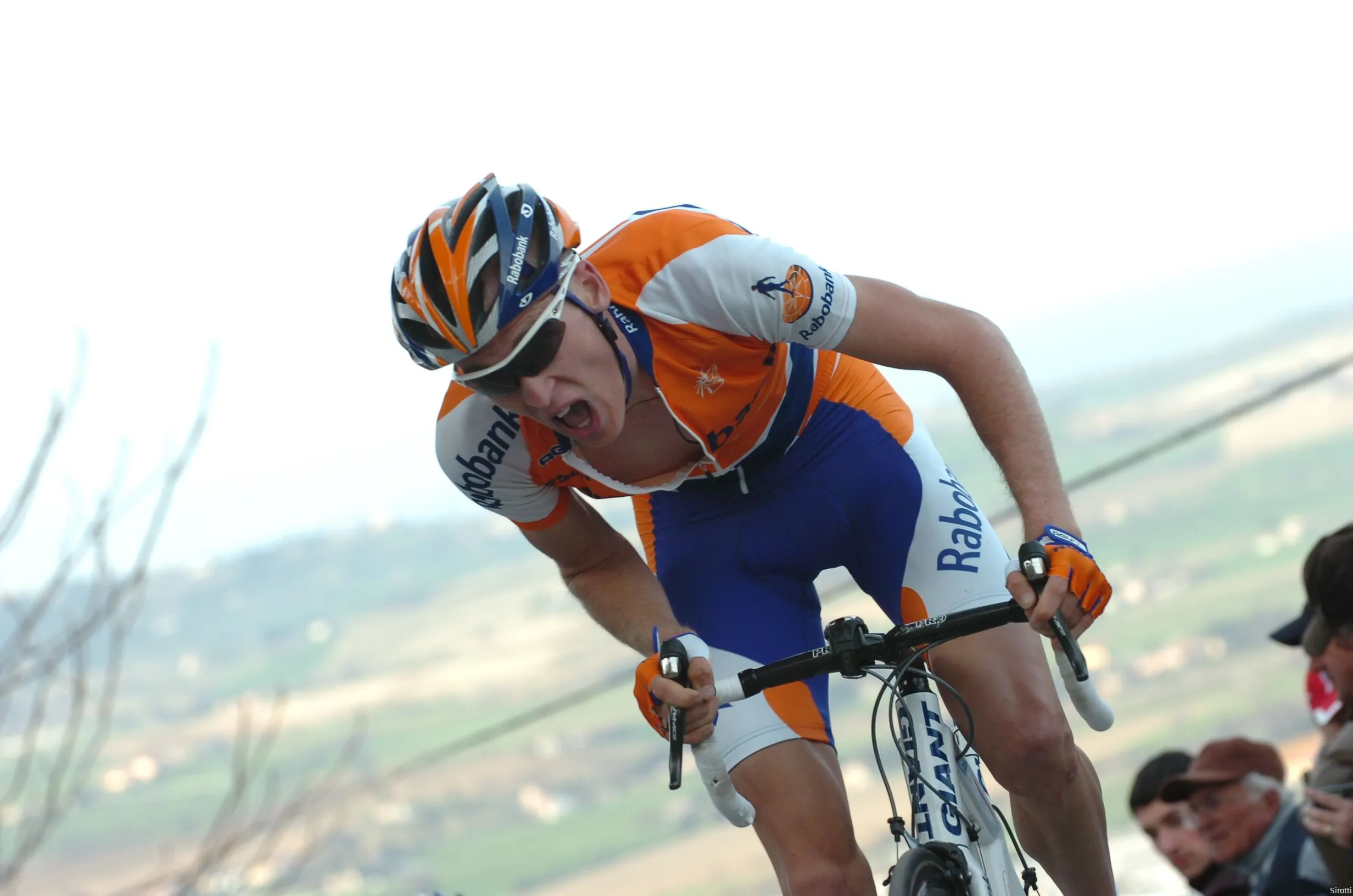
On Wednesday evening, the unexpected news broke: Rabobank is returning to the peloton. On Thursday morning, the confirmation followed: the bank will sponsor Visma | Lease a Bike until at least 2028. The announcement drew significant attention both domestically and internationally. Robert Gesink, one of the biggest success stories from the old Rabobank era, expressed his excitement about the bank’s return.
Rabobank has a long history in cycling. From 1996 to 2012, it was a leading sponsor in the WorldTour, and even after that, it continued supporting the women’s team until 2016. The bank also played a crucial role in the development of youth teams and cycling events in the Netherlands. Its impact was enormous, laying the foundation for many Dutch cycling talents who later achieved great success, such as Tom Dumoulin, Bauke Mollema, and Robert Gesink.
Text continues below photo
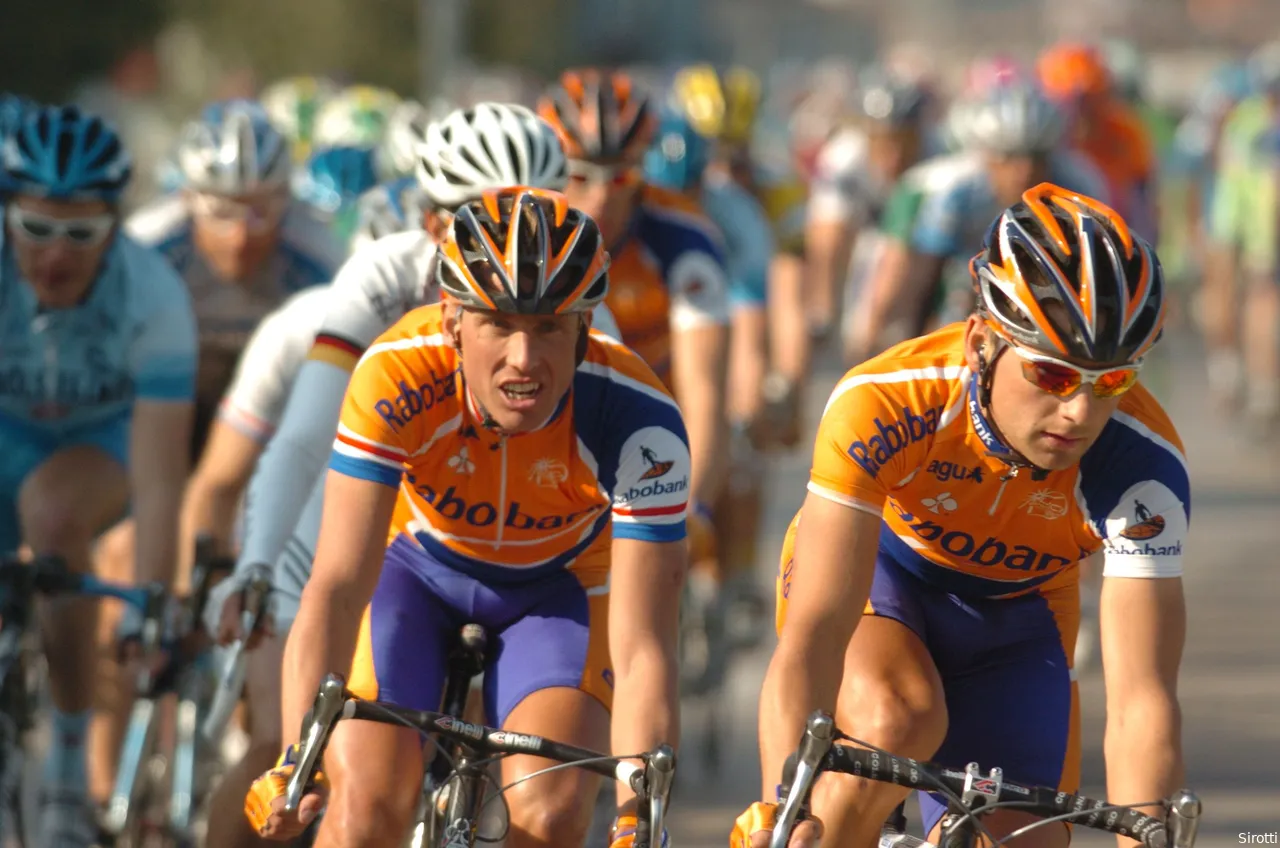
The illustrious Rabobank team
Gesink experienced both the fall and the comeback
"That says a lot about what Rabobank has meant for cycling in the Netherlands over the years. I’ve said it before, and I’ll say it again—it’s a shame that Rabobank never really received the appreciation or recognition for all the good they did for the sport. Of course, people remember the negatives, but in general, I see it like this: Rabobank made it possible for many kids and clubs to start cycling, organize races, and help the sport grow. Thanks to their financial support, we got, in my opinion, the strong generation of riders we have today," Gesink told cycling journalist Daniel Benson.
The 38-year-old former rider is enthusiastic about the bank’s return. Gesink began his professional career in 2006 with Rabobank’s development program and has witnessed every stage of the team’s evolution since then. From the glory days with legends like Óscar Freire, through the difficult period after 2012—when Rabobank withdrew following doping revelations—to the team’s rise back to the top, the Dutchman was always part of it.
Text continues below photo
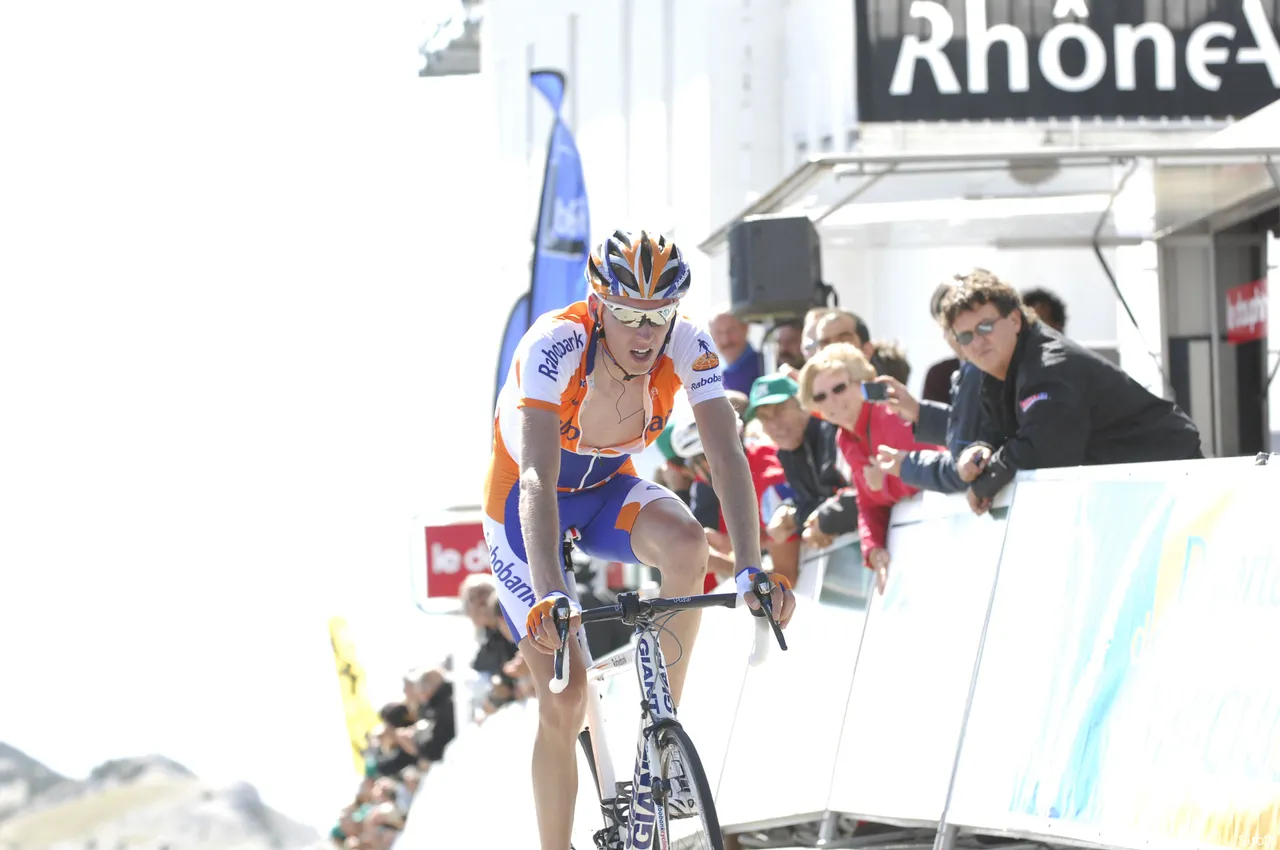
Gesink in the Rabobank team's jersey
Gesink was thrilled when he received a call last week
"The young generation coming up at the time was punished for things they weren’t part of. So, it’s fantastic that Rabobank is returning to this beautiful sport. Moreover, they’re not just supporting the teams, but also youth programs," says Gesink.
While the Rabobank team became infamous for both positive and negative reasons, Gesink mostly has fond memories. "As a kid, Rabobank was the team we all dreamed of. I have a much warmer feeling about it than a fan from another country might, so I always hoped they would return and do something with the team. I was really happy when I got a call last week asking if I still had pictures of myself wearing a Rabobank jersey as a kid."
Gesink believes that Rabobank’s return should be fully embraced. "It shows that cycling has largely—but certainly not completely—changed. If this helps create more development opportunities and brings stability, then this news is only positive."
Text continues below photo
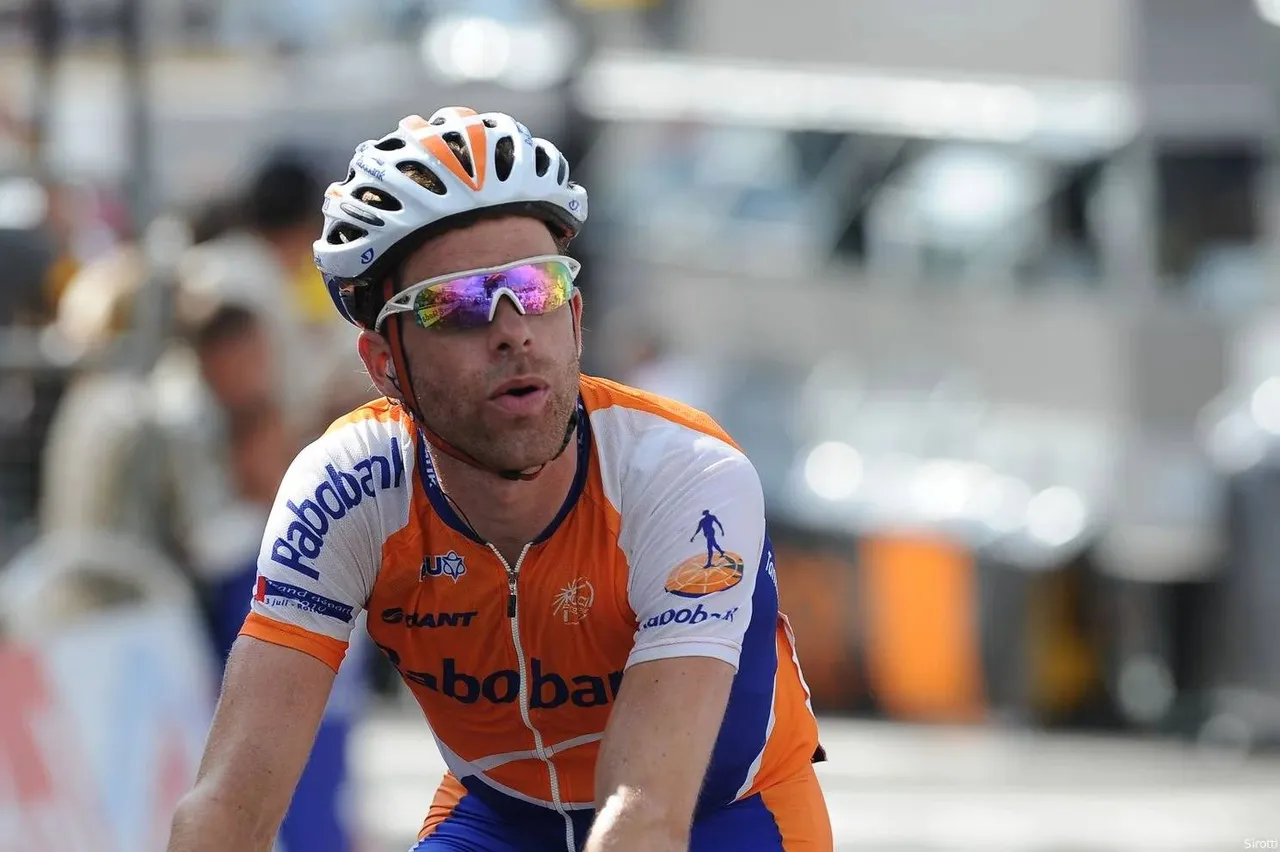
Gesink and Tankink see Rabobank’s return as a positive step for the future of cycling
And there are certainly opportunities for growth. Cycling in the Netherlands can catch up and re-inspire young children. "I see it with my own kids as well: they are drawn to cell phones and computer games. It’s not natural for them to choose a sport and spend time outside with their friends. It makes sense to make the sport more appealing to kids because the talent is still there—they just don’t know it yet. They need to discover and enjoy the sport," concludes Gesink.
On X, Bram Tankink also responded to Rabobank’s return. "Alright. Back on X for once. Wonderful to see Rabobank returning to Dutch cycling. The youth especially need this. All the top riders of recent years came through Rabo’s development program. Hopefully, in 10 years, we can say the same again," said Tankink, who rode in the peloton with Rabobank on his chest for five years.
Read also
IDL-productions

Remco Evenepoel rides Brabantse Pijl with special tape: "If I were a tennis or basketball player, my career would be over"

Preview Brabantse Pijl 2025 | Evenepoel’s comeback, but also van Aert, Pidcock, a strong UAE team, and many more!

After a somewhat forced exit from Alpecin-Deceuninck, Laurance brings van der Poel-like mindset to his new INEOS squad

Can top talent Nordhagen impress on behalf of Visma in the French cycling weekend?

Preview Amstel Gold Race 2025 - women | Vollering, Vos, Van der Breggen, Kopecky, Pauline Ferrand-Prévot—The top riders are all lining up
Latest Cycling News

Bruyneel impressed by more than just van der Poel and Pogacar: "That rider will be a future star"

🎥 Alpecin domestique Dillier shares update after brutal crash with Visma | LaB mechanic: "I appreciate the sincere apology"

Recovering Laporte sees major difference at Visma | LaB compared to other teams: "In France, we have a certain mentality"

Remco Evenepoel rides Brabantse Pijl with special tape: "If I were a tennis or basketball player, my career would be over"

Van Aert and Visma head into Brabantse Pijl and Amstel Gold with ambition: "If anyone can do it well, it's Wout"
Popular Cycling News

The day after Roubaix: Van der Poel on the golf course, Van Aert at the coast and Pogacar and Pedersen vow revenge

Thomas on Pogacar vs. van der Poel in Paris-Roubaix: "In the Tour he will have a three-hour lead"

Sean Kelly spots strange Alpecin move in Paris-Roubaix: "Maybe van der Poel thought he needed to get rid of Philipsen"

Bruyneel impressed by more than just van der Poel and Pogacar: "That rider will be a future star"

Preview Brabantse Pijl 2025 | Evenepoel’s comeback, but also van Aert, Pidcock, a strong UAE team, and many more!
Latest Comments
- Such negative comments that are truly inappropriate and actually ridiculous. He sounds like an old man, bitter that he can't race anymore. Why can't he just be gracious? Or just shut up. Instead of howling for attention, in such a rude manner. Must be Dementia creeping in. We are all living in the Now. Records are there, and some are being broken, some are unapproachable. If he doesn't like it, and it makes him sick, maybe he ought start watching some other sport. Don't want the old mans health to be upset.
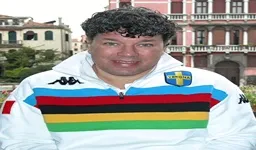 reemmo031-03-2025
reemmo031-03-2025 - Roger De Vlaeminck inspires me to create a new beer: "Bitter Old Twat Belgian".JackInhof31-03-2025
- Shoot, I'll ride it for 1/10 of what his pay for that day is😅Veganpotter30-03-2025
- What is this? The Lance Armstrong daily cheaters channel? I could care less about Johan and Lance the seven times cheater. Greg Lemond was right all along, Why don't you write about that instead of these two knuckleheads.velodrone28-03-2025
- Are we all doomed to hear from Lance Armstrong and Johan bruneel until the end of time? It's not enough the stain they left on cycling? Do we have to see that shadow forever?bigyakman26-03-2025
- I am not sure if it is the hardest to win. In Flanders and Roubaix well before the finish the Peleton will be decimated and the race will normally be won by the best rider of the day or maybe 2nd or 3rd in case of a mechanical or unlucky break especially in case of Roubaix. In San Remo just before the finish there will still be several riders in contention and they are hard to ditch. For the best riders it is a race hard to win since it is not so selective. But if you are not a top 5 rider but still a top 10 rider this race is your best change to win. You will see more Milan San remo Winners with only 1 monument win than any other monumentsJoostmehrtens19-03-2025
- "fap fap fap oh Lance oh oh OHHHHHHH" again. Does he pay you to dredge up people with nice things to say about him? He was an giant a$$hole to people. It is a fact. Whatever his contrition about the doping, he is unapologetic about being a giant a$$hole to people. (Why yes, I do only login to complain. *I* am however only a giant a$$hole to people who laud giant a$$holes.)ericjensenridesbikes25-02-2025
- Remco is still very young. And injuries can absolutely keep you from overdoing it and getting worse. The recent Remco accident didn't keep him from being able to ride a recumbent inside. Wout's knee is a different story thoughVeganpotter23-01-2025
- Van der Poel style is winning by a half a lap and leading the race from the end of the second lap.
 Barnes127420-01-2025
Barnes127420-01-2025 - If she thinks talent alone will put her there she will not see many podium finishes much less a GC finish.....work as a team utilizing tactics to consistently be at the top.Germanrazor10-01-2025

